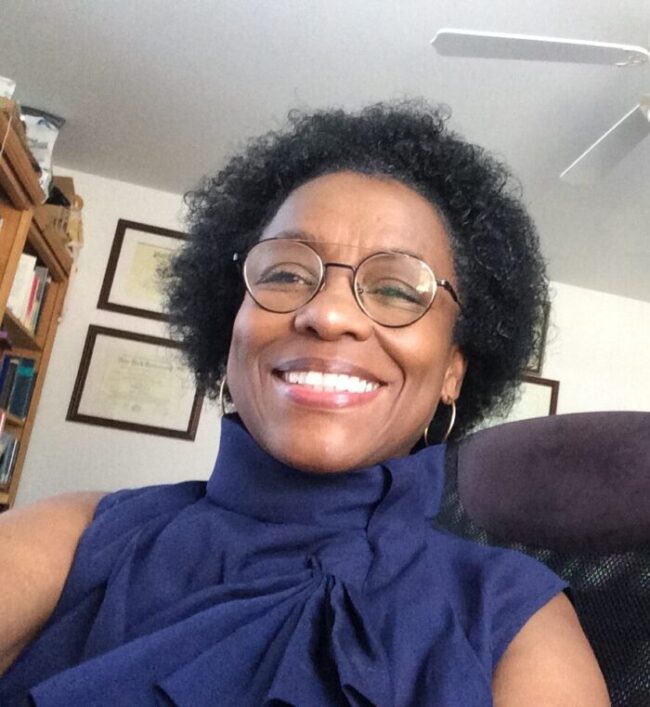Blog

COVID-19 Response: Supporting Hundreds in the Heart of Manhattan
August 3, 2020On West 43rd Street in Manhattan, CUCS provides supportive services to 650 tenants at the Times Square, a permanent supportive residence for men and women. Marlene Karlin, the Times Square’s Program Director, discussed what she is grateful for and how hard she and her staff have worked to stay connected while adjusting to the “new normal” of living and working during Covid-19.
I’m grateful to have staff that are dedicated and an agency that cares about not only the clients that we serve, but also the employees. I’m grateful that I’m still working. I know a lot of colleagues that are out of work. Our agency has been able to keep us all working and we are essential because of the work that we do. Having a job, doing good work and being able to connect with folks who are not connecting with anyone else; I’m super grateful for that.
This experience was scary at first, not only for me, but for my entire staff. Everyone was wondering: ‘What do I need to do to ensure that I don’t get COVID?’ We were seeing people getting sick and dying, and we didn’t know a lot about it. It felt like a death sentence in a lot of ways.
As we kept coming to work at our site, we gradually became less scared. The thing that helped a lot was CUCS was managing it so well, getting PPE, gloves, and masks. CUCS put out very clear procedures and policies that told us what works and what doesn’t work. We all received memos from Dr. Yu, our Chief Medical Officer, about what is happening. All that support helped a lot to reassure staff and help us feel that we are in a good place and we can still do our work.
We provide services to 650 tenants at the Times Square and to stay safe, we are using a staff rotation schedule. I’ve divided my staff into three teams of 7 to 8 people. We work on-site one week, then remotely at home for two weeks. One great thing that has happened is that I’ve been able to get to know the staff I work with on rotation so much better. We’re in smaller teams and we’re depending on each other a lot more. I have a great bunch of staff that I work with. They are smart, funny, hardworking, and they really want to do the best for our clients.
The first week when I came on rotation, we would have clients coming up to us and say ‘Oh my god, you guys are here.’ They were coming to the office and ringing the bell to see us. It wasn’t that they needed anything in particular, they just wanted to come in and talk with us. We do floor to floor check-ins, knocking on doors to check-in on clients. They are elated to talk with us about what has been going on with them. When we are working remotely, we are calling them daily.
Staff are talking with clients on the phone and some staff are doing video calls, because not having immediate, in-person access to staff has been hard for many clients. But we are talking with them a lot. We even set up telehealth services with our psychiatrists via phone. It was uncomfortable in the beginning and it did have an impact because it didn’t feel like an appointment. Now they’re getting more used to it.
One thing that I am extremely proud of is that none of my staff have gotten COVID and though we work with 650 clients, many who are elderly with frail health, we have not lost anyone to COVID. We have done a lot to keep staff and clients safe. When we first come in, we spray down everything, wipe the door handles, and the doorbell clients use. Staff have their masks ready and we are constantly giving masks to clients. When we see someone without a mask, we give them one. You know, we get everything ready and then I literally walk around with masks in my bag. So when I’m out on the floor, if I see someone without one, I give them one.
I hope we continue to be successful at connecting with clients because I think it’s hard when you’re not able to work with someone in person. You can’t really do the type of assessment you’d like to do if you’re talking to someone on the phone. So oftentimes, when we’re rotating in we talk to clients in their apartments. We try to be safe while doing it, making sure we are masked and talking to them at their doors.
Staff who are not on-site send emails to rotating staff about the folks that they haven’t connected to in a day or two days. We knock on their door, we talk to them, we try to figure out what’s going on and we support them.
